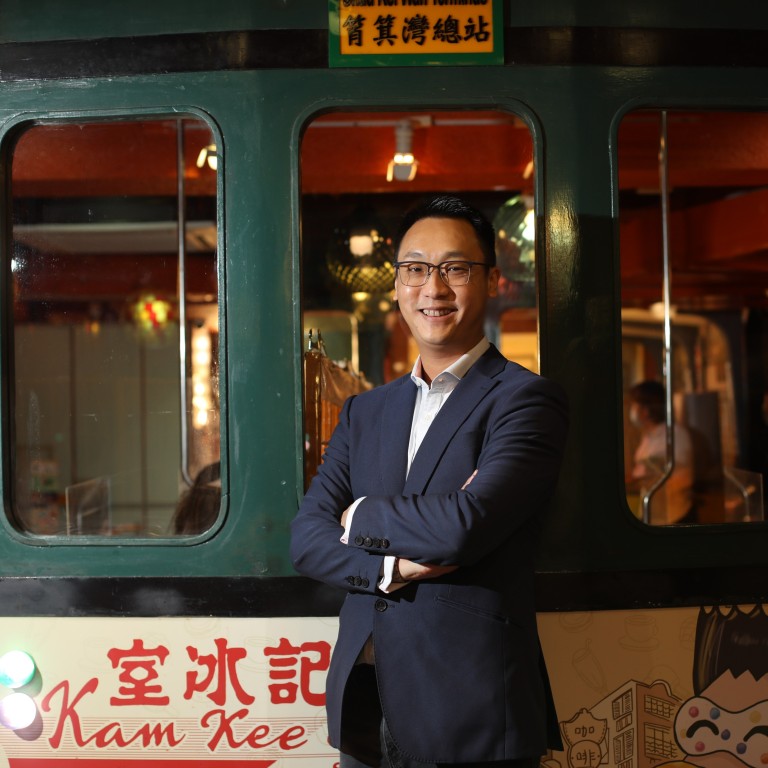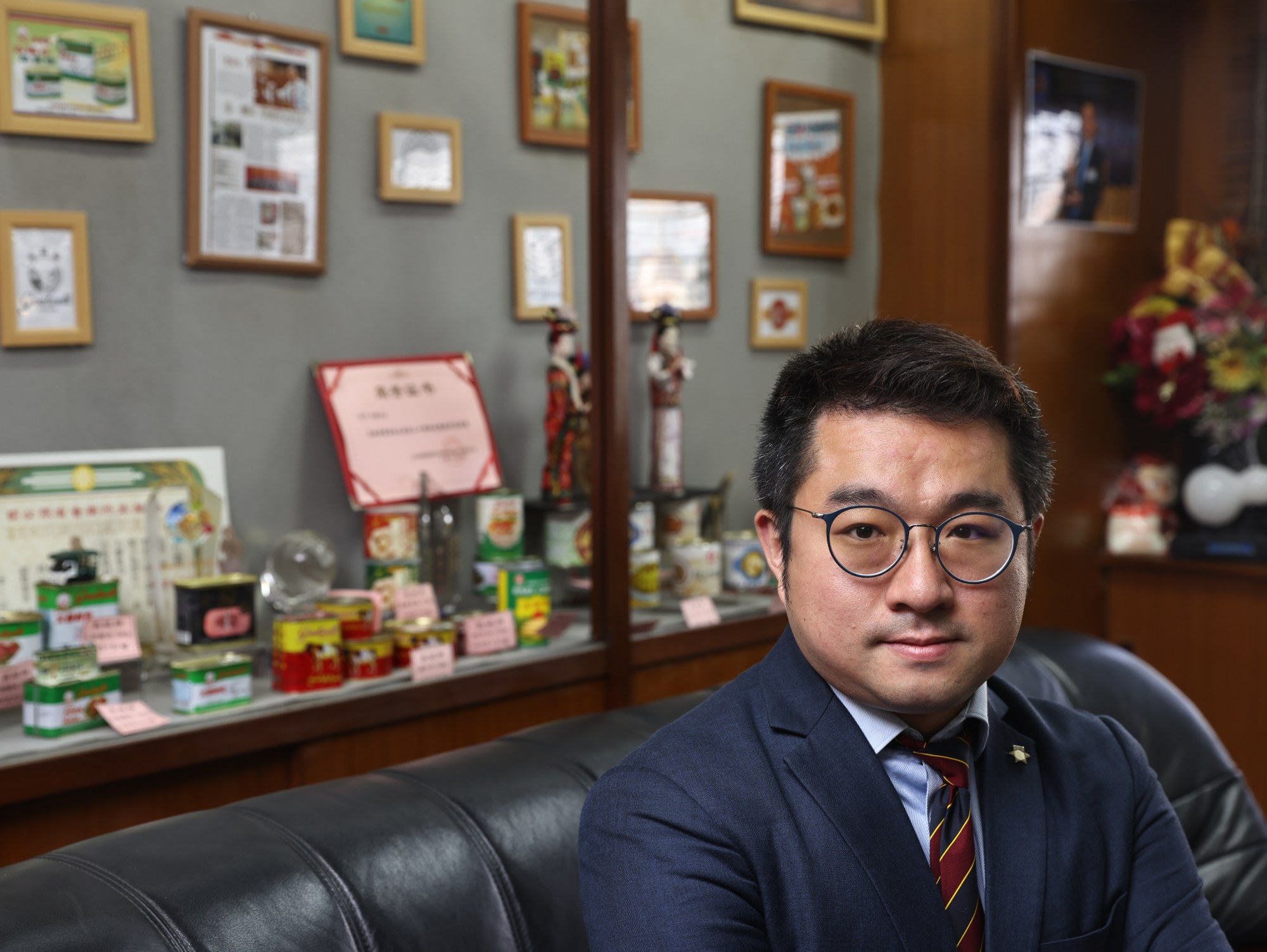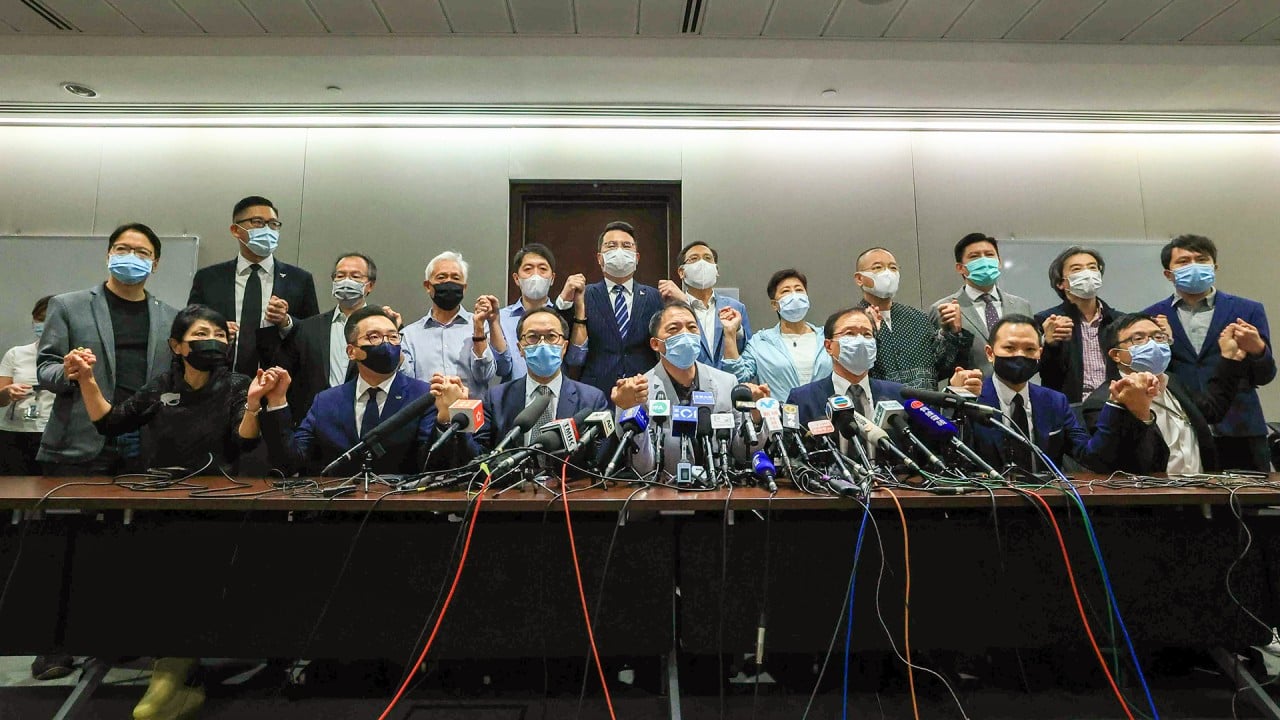
The young and the restless: first-time Legco candidates put Hong Kong’s ageing functional constituency lawmakers in crosshairs
- Among 67 candidates vying for 30 seats, at least 45 are novices, with 25 under 50 years old
- Beijing won’t mind if younger, talented hopefuls with fresh ideas knock out veterans, observers say
At a Causeway Bay cha chaan teng, a local cafe with retro decor reminiscent of Old Hong Kong, owner Ray Chui Man-wai is cooking up “election dishes” in his bid to represent the catering sector in the Legislative Council.
The 40-year-old’s rags to riches story, rising from teenage hawker to chairman of Kam Kee Holdings, where he runs a chain of 44 restaurants, is the stuff films are made of.
He is hoping to unseat heavyweight Tommy Cheung Yu-yan, 72, who has represented the sector for five terms since 2000 and is a member of the city leader’s de facto cabinet, the Executive Council.

Chui, who is chairman of the catering industry body the Institute of Dining Art, said: “I have been in the catering business for more than 10 years with many ups and downs, so I fully grasp the ins and outs of this industry.
“Compared with Tommy Cheung, who isn’t operating any catering business, I think I know better how to help the industry ride out difficulties and create opportunities.”
Call it bravado or a serious challenge, but Chui is not the only newcomer hoping to knock out a long-time incumbent in Legco’s functional constituencies on December 19.
Beijing media misunderstands Hong Kong property woes, Legco candidate says
There are 67 candidates vying for 30 seats in 28 mainly trade-based functional constituencies long dominated by pro-Beijing veterans. No fewer than 45 are first-time aspirants, and 25 are under 50, compared with a group of veterans mostly in their 60s or older.
Insiders told the Post Beijing was keen to reboot Hong Kong’s stagnant economy and would not mind seeing competent younger candidates rejuvenate the city’s political scene with new thinking and fresh ideas.
Hong Kong officials not decisive, tough enough to fix housing woes: Howard Chao
This month’s election will be the first since Beijing overhauled the city’s political system to ensure only “patriots” run Hong Kong. The Legislative Council has been expanded from 70 to 90 seats, with 40 coming from the new Election Committee constituency and just 20 from geographical constituencies.
For the first time since Britain returned Hong Kong to Chinese rule in 1997, all 30 seats from the functional constituencies will be contested, and political watchers are keen to see if newcomers succeed in replacing veterans.
Apart from Chui, other novices include Michael Li Chi-fung, 38, grandson of “King of Canned Food” Lee Fuen, who is competing against political veteran and lawyer Kennedy Wong Ying-ho, 58, for the import and export sector seat; retail firm boss Lam Chi-wing, 42, taking on incumbent Peter Shiu Ka-fai, 51, for the wholesale and retail sector seat; and manufacturer Sunny Tan, 48, who is hoping to knock out incumbent Felix Chung Kwok-pan, 58, to take the textiles and garment sector seat.

There is also Kenneth Fok Kai-kong, 42, eldest grandson of the late tycoon Henry Fok Ying-tung, competing against Ming Pao Publications general manager William So Wai-leung, 53, for the sports, performing arts, culture and publications sector seat; and former Law Society president Ambrose Lam San-keung, 60, running for the legal sector seat against scholar Louis Chen Xiaofeng, 32.
But with Beijing believed to be calling the shots from behind the scenes, many analysts question whether the December election will see real competition or simply a stage-managed show.
With Hong Kong’s main opposition parties staying at home and all candidates cleared by a stringent vetting system, some also wonder if the winners will represent their sectors adequately.
Some sectors, including the legal, education and social welfare groups, have long been opposition strongholds, and voters may decide to shun the election.
Hong Kong Legco candidates’ simple slogans, brief statements show ‘lack of effort’
A reliable source told the Post that incumbents or heavyweight candidates in the functional constituencies would be tested at the polls, as Beijing had selected the line-up of candidates carefully to ensure that only capable individuals were in the race.
“Many candidates, particularly the new faces, were either invited by Beijing’s middlemen or gained its blessing to join the race, while many unsatisfactory aspirants were actually barred from running,” the insider said.
“Beijing doesn’t want uncontested races any more. Uncontested elections will only encourage complacency and deter improvements.”
Some Legco veterans continue to enjoy strong backing from Beijing and are expected to sail through comfortably, but the word is that the central government would like to see real competition in the catering, textiles and garment, wholesale and retail, and import and export sectors, among others.
Meet the Hong Kong election candidate no one had heard of – until last week
“Some sectors have been dominated by the incumbents for a long time, and they may take things for granted, relying on old thinking. Beijing doesn’t mind seeing some capable young candidates beat their veteran rivals through their own effort and competence,” the source said.
“Real competition could push candidates to strive for improvements for themselves and their sectors. It also provides a way for Beijing to identify competent young successors for different sectors.”
Chui brushed off the suggestion that his candidacy was only for show, saying: “I’m taking this election very seriously. I visit my voters door-to-door to lobby for their support.”
He hopes to see better training opportunities for young talent such as chefs and catering managers to upgrade the sector and resolve a perennial manpower shortage.
“As a city of gourmets, Hong Kong could establish its own culinary institute like Le Cordon Bleu Culinary Arts Institute to attract catering talent from around the world,” he said.
Hong Kong elections chief insists Legislative Council poll will go smoothly
His opponent, incumbent Tommy Cheung, declined a request to be interviewed. In his election platform, Cheung vowed to provide recovery strategies for the sector and urged the government to resolve manpower issues.
Felix Chung, who has represented the textiles and garment sector for nine years, is unfazed that challenger Sunny Tan can count on his brother Henry Tan, chairman of the Textile Council of Hong Kong, to mobilise support.
Chung said: “I’ve done a lot for the sector and have a very strong track record, such as successfully fighting for the government to set up a design and fashion hub in Sham Shui Po. Voters know who can fight for them. There is no reason they will select a newbie without any track record instead of me.”
But Sunny Tan, executive vice-president of Luen Thai International Group, countered that he had also done much for the sector, including pressing the government to help cash-strapped manufacturers gain access to the branding and development fund.

First-time candidate Michael Li, deputy general manager of Yuen Tai Trading Company, a distributor of Greatwall luncheon meat, said he hoped to help the import and export sector refresh their brands to boost their success overseas.
He said he had rolled out several creative canned food products based on local Hong Kong favourites such as pork with creamed corn and tofu roasted pork, and the feedback had been good.
“The sector is facing an ageing workforce, but I hope to bring in creativity and innovation to help companies build their brands,” he said.
He is hoping to beat Kennedy Wong, who is vice-president of the Hong Kong Chinese Importers’ & Exporters’ Association and has the support of retiring incumbent Wong Ting-kwong.
Kennedy Wong said he intended to push the government to set up trading offices in the bay area cities to expand Hong Kong’s trading potential there.
Cross-border campaigning for Hong Kong poll impossible: centrist hopefuls
Ambrose Lam, running for the legal sector seat previously dominated by pro-democracy candidates, said every vote would count and he was reaching out to all voters.
“I believe all my electors are rational and will give their vote to the most suitable candidate to be their representative in the Legco,” he said. “The legal functional constituency has had one of the highest turnout rates in previous Legco elections, I see no reason why it should not be so this year too.”
Chung Kim-wah, deputy chief executive officer of the Hong Kong Public Opinion Research Institute, predicted a low voter turnout in the pro-democracy strongholds because of the absence of opposition candidates.
That, he said, could result in the winners’ legitimacy as industry representatives being questioned. They could also fail to grasp their constituents’ opinion on key issues.
“How can they then fight for the best interests of their sectors?” he asked. “Legco might become isolated from the public, failing to push for effective governance.”
Lau Siu-kai, vice-president of the semi-official Chinese Association of Hong Kong and Macau Studies, said there was no need for Beijing to fix the election outcomes by allocating votes for specific candidates.
“With all candidates approved by Beijing and opposition candidates screened out, I see that Beijing is allowing free competition in each sector,” he said.
By the same token, veteran lawmakers should not expect an easy ride either, Lau added.
“They need to work hard with a proven track record to win voters’ support. They can’t expect to win their seats by lying flat,” he said.







